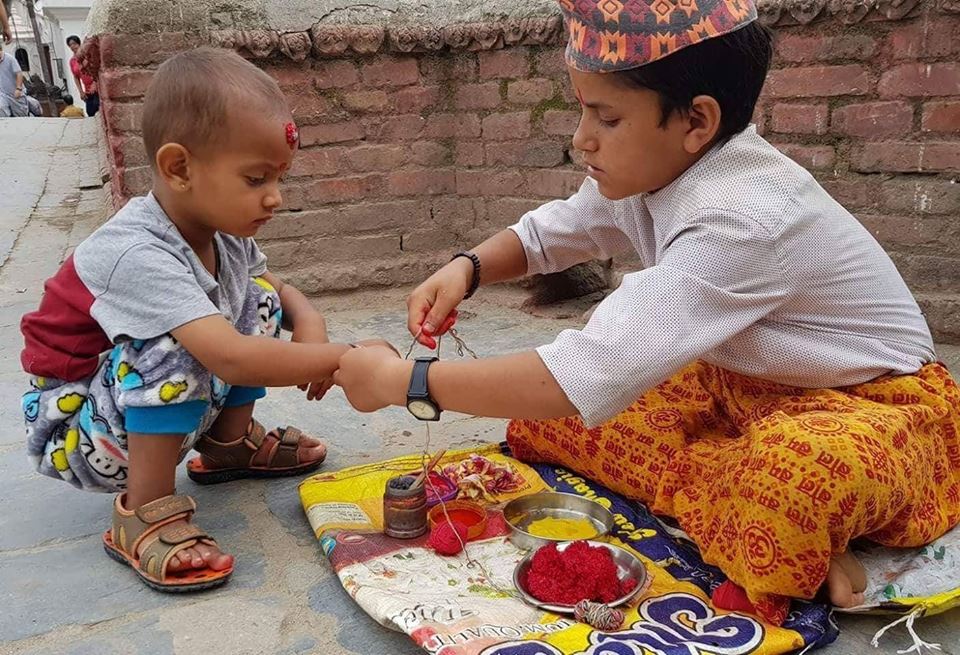Today, Hindus across the nation celebrated Janai Purnima or Raksha Bandhan. On this day, Hindu men change their white sacred (cotton) thread they wear (diagonally across the chest from their left shoulders). They believe the thread will ward them against evil. But, that’s not the only ritual, the festival holds different significance and is celebrated differently in other communities.
In the Brahmin-Chhetri community, men also take an early morning bath in the sacred rivers or under the tap of their homes. They visit nearby temples for the annual ritual. Both men and women then tie ‘Raksha Bandhan doro’ around their wrists, with the pundits chanting mantras. The doro symbolizes a safe and prosperous life. On Gobardhan Puja during Tihar, men tie the thread around a cow’s tail, hoping it will bring them good fortune and safeguard their lives.
On Janai Purnima, many people also visit Gosainkunda to offer their prayers and practice holy rituals according to their respective beliefs. Those who cannot visit Gosainkunda, visit the Kumbeshwor Temple in Patan. People believe that water in the pond at the Temple directly comes from the holy lake Gosainkunda.
In the Terai region, the day is Rakshya Bandhan or Rakhi, a day that celebrates the brother-sister bond. On this day, sisters tie beautifully-decorated thread, i.e Rakhi, around the wrists of their brothers. It’s their gesture to thank brothers for protecting them and a prayer for their long good health, safety, and prosperous lives. In return, brothers shower their sisters with gifts and a promise to protect them.
Janai Purnima: Kwaati Punhi
Meanwhile, the Newar community celebrates Janai Purnima as Gunhi Punhi or Kwaati Punhi. Kwaati is a soup with nine beans (soaked the night before). It is full of nutritious value. The soup helps increase immunity in one’s body, consequently helping them fight the diseases as the seasons change. Members of the Newar community also visit nine different bihars around the Kathmandu Valley and wear new clothes.
Also, tired farmers in the field consume this soup to gain energy and recover from the tiredness. Hence, this day is a celebration of the ending the month-long work with their loved ones. The farmers also offer different food items to frogs, believed to be an agent of the Rain God. They pray for less rainfall from this day onwards to increase crops productivity.
People of different cultures celebrate Janai Purnima with different beliefs but the same utmost sincerity. And like the thread (janai/doro/rakhi) worn today, the festival with belief that it safeguards oneself and their loved ones ties the diverse communities together. It is one of those auspicious and culturally significant festivals of Nepal.




Leave a Reply
You must be logged in to post a comment.